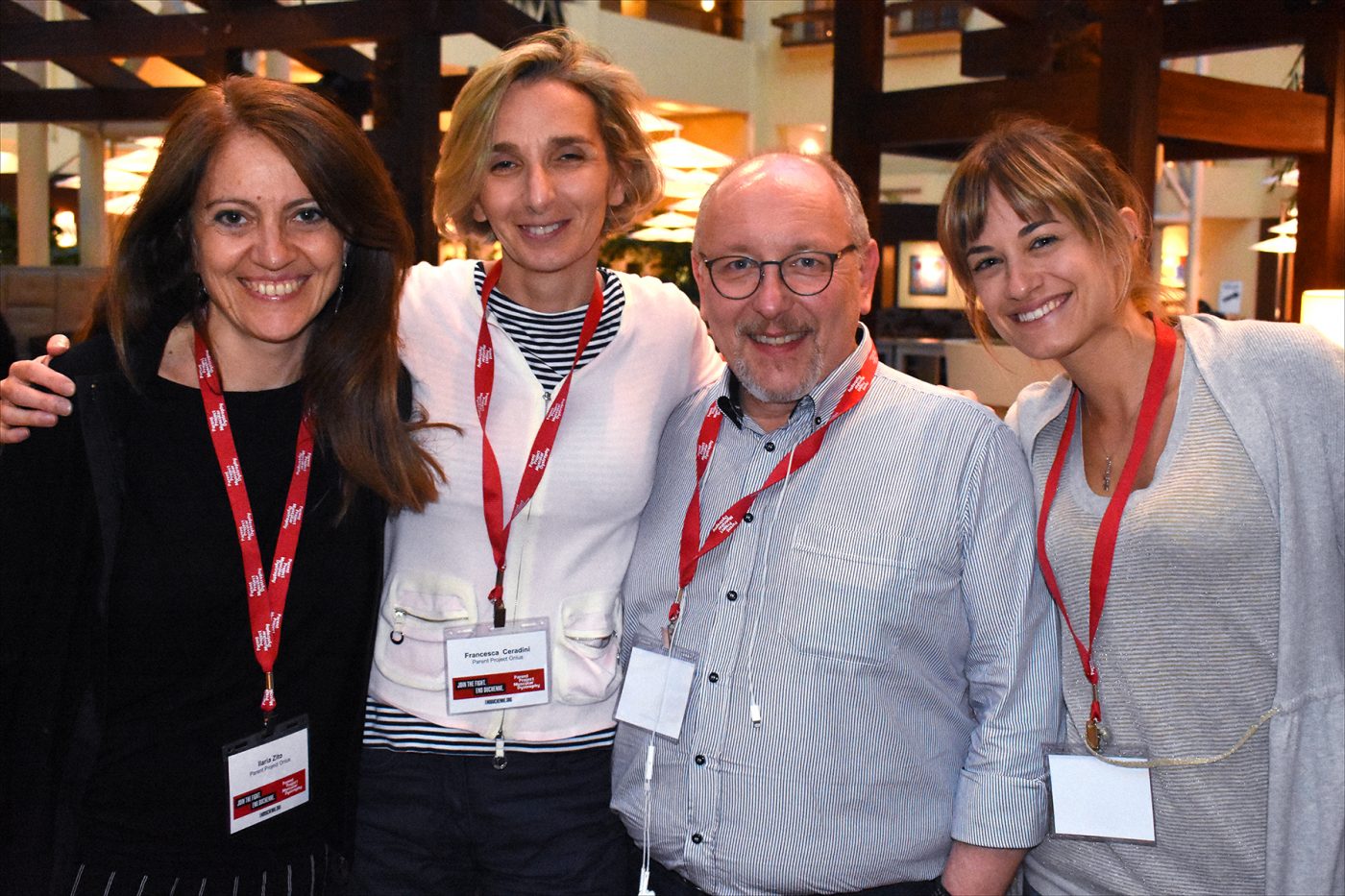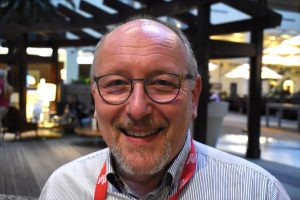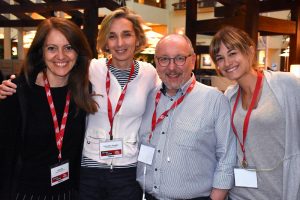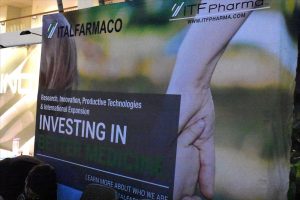Father Inspired by Son to Spearhead Duchenne Parent Project Italy
Written by |

Parent Project Italy’s team, from left: Ilaria Zito, curator of the Italian DMD/BMD patient registry; Francesca Ceradini, scientific director; Filippo Buccella, founder; and Irene Del Vecchio, corporate fundraising. (Photo by Larry Luxner)
Filippo Buccella, an Italian pharmacist from Rome, clearly remembers the day in 1993 when he brought his nearly 3-year-old son, Luca, to the hospital.
Luca was about to undergo surgery for his adenoids when a test revealed that his creatine kinase level was over 11,000 — a hallmark symptom of Duchenne muscular dystrophy. Doctors confirmed the Duchenne diagnosis in a biopsy during the surgery.
“We never suspected anything because no one in our family was aware of the disease,” Buccella said. “But there was nothing we could do. They told us to go home and try to be happy.”
Buccella is the founder of Parent Project Italy, and told us his story during a conference in Orlando, Florida, which was headed by his longtime friend, Pat Furlong, president and CEO of Parent Project Muscular Dystrophy (PPMD).
“This is what used to happen in the ’90s,” Buccella said matter-of-factly. “They also said my son would stop walking around age 9 and stop breathing around 13 or 14 — and that he would probably die by 15. This was a wake-up call for me, because I’m a pharmacist, and I was so sad that I had drugs for everyone and nothing for my son. So I decided I had to do something.”
The Muscular Atrophy News forums are a place to connect with other patients, share tips and talk about the latest research. Check them out today!
Surfing the Internet, he began reading everything he could that was related to Duchenne. In 1994, he connected online with Furlong, as well as with Koren Stark, a Microsoft employee from Seattle who was helping Furlong with PPMD’s fledgling website.
“I invited Pat, who had just lost her two sons that summer, to Italy. She told me about Elizabeth Vroom [founder and president of Duchenne Parent Project Netherlands],” Buccella said. “They both came to my house and insisted we do something in Italy, because we needed to spread this movement everywhere.”
After attending PPMD’s 1995 conference in Pittsburgh, Buccella returned to Italy and, with renewed vigor, drove all over the country in his camper every weekend, looking for other families affected by Duchenne. The next year, he incorporated Parent Project Italy as a nonprofit organization.
“Filippo, Elizabeth Vroom, and I met long ago,” Furlong said. “We believed that by working together, we could begin to change the world of Duchenne. We joined hands and hearts with hope and invested in every promising area of research, and insisted on optimal care. We continue today with that same approach.”
More awareness about muscular dystrophy
In 2007, the charity launched a Duchenne registry for Italian patients that now includes 800 of the 900 or so known DMD boys in Italy — although Buccella thinks the country may be home to as many as 2,000 people with the disease.
One Italian company, Milan-based Italfarmaco, is currently involved in a Phase 3 trial (NCT02851797) of givinostat — an investigational drug that aims to boost the muscle regeneration capacity of Duchenne patients. The trial is recruiting boys, age 6 to 17, at 39 locations in the United States, Canada, Belgium, England, France, Germany, Italy, Netherlands, and Spain.
Meanwhile, Luca — the boy who wasn’t supposed to make it to 15 — is now 29 years old.
“We never told our son he had no hope,” Buccella said. “He was different from the others; he wasn’t able to run or walk, but he was perfectly able to do everything else. When he was 8 years old, he decided he wanted to do something in the movie field. He always loved movies.”
No surprise, then, that Luca now works for the Disney entertainment conglomerate, translating promotional material about upcoming movies from English into Italian.
Since the age of 16, Luca has used a ventilator at night. He also has an assistant to help him with dressing, bathing, and just about everything else.
“Doctors are still negative, but in the past 10 years, a lot has changed,” said Buccella. “Now everything is different, because doctors are used to meeting parents who browse the Internet every day — so they need to be aware of what happened two days ago. Otherwise, parents will know more than they do.”
For example, when Buccella asked his son’s physician why he wasn’t prescribing steroids, the doctor told him they were useless.
“So I looked for other doctors until I found one who would prescribe steroids for him,” he said.








